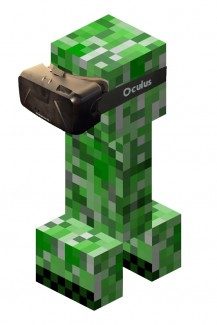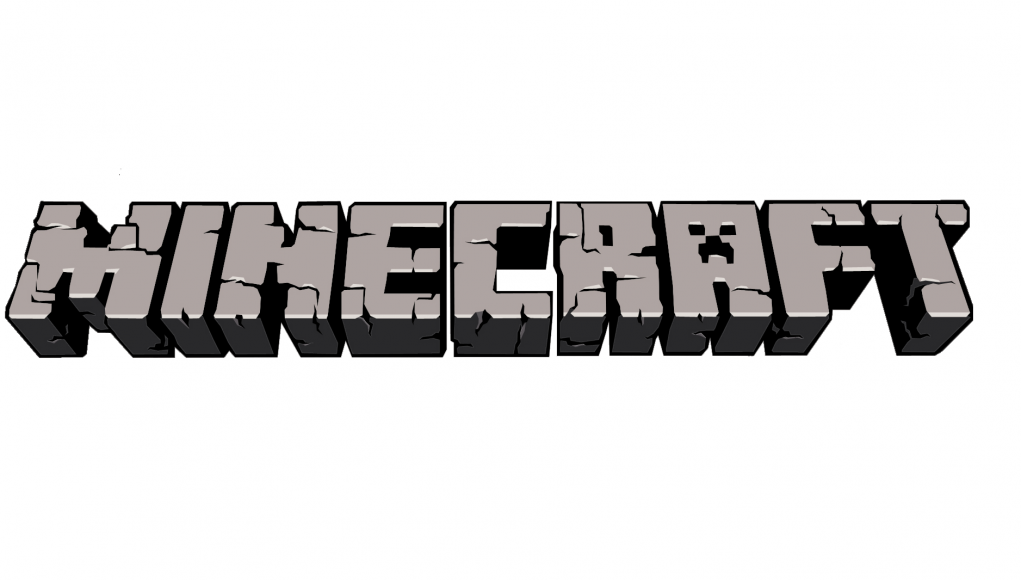John Carmack, famed developer and Oculus CTO, is known for being open and frank. Having prodded Minecraft developer Mojang on the topic in the past, now that the company has changed hands following its sale to Microsoft, Carmack has once again reached out publicly to ask what needs to be done to get Minecraft on Gear VR.
“Who do I have to convince at Mojang post-@notch that Minecraft PE on Gear VR would be awesome?” Carmack tweeted, referencing Markus “Notch” Persson, creator of Minecraft and founder of Mojang, who recently left his company after a sale to Microsoft. Carmack was instrumental in the collaboration between Samsung and Oculus to create Gear VR which is officially “Powered by Oculus.”
 Oculus and Mojang have had an interesting history of ups and downs. Notch backed the original Oculus Rift Kickstarter for $10,000 saying, “High odds our games will support it, assuming we can get it to work.” Mojang was one of the first developers to get their hands on the Oculus Rift DK1 from the Kickstarter campaign, tweeting out a photo of the unit before they were supposed to.
Oculus and Mojang have had an interesting history of ups and downs. Notch backed the original Oculus Rift Kickstarter for $10,000 saying, “High odds our games will support it, assuming we can get it to work.” Mojang was one of the first developers to get their hands on the Oculus Rift DK1 from the Kickstarter campaign, tweeting out a photo of the unit before they were supposed to.
After the Facebook acquisition of Oculus, Notch said that “Facebook creeps me out,” and that he “cancelled” a deal regarding Minecraft on the Oculus Rift. Palmer Luckey, creator of the Oculus Rift and Founder of Oculus responded, “He had the Rift for a year and had not even tried the Minecraft mod (which is really good), much less done any exploration work. I think Notch is a super cool guy, but it is really easy to ‘cancel’ a project that was never started as an out.”
In August, Notch said he was “officially over being upset about Facebook buying Oculus.” Interestingly, Notch had turned over active development of Minecraft to another Mojang developer long before most of this back and forth unfolded.
In response to Notch’s 180, Carmack apparently offered to port the game to Gear VR before the unit had been announced, tweeting to Notch, “say the word, ship the source, and I’ll make sure it runs well on you-know-what…” Even though Notch had initially said that there was a good chance that Mojang’s games would support the Rift, none of them yet have official VR support. Now, after selling Mojang to Microsoft and leaving the company, the decision isn’t up to Notch.
Yesterday, Carmack tried again, asking on twitter who he would need to convince at Mojang to get Minecraft on Gear VR now that Notch had left. A conversation between Carmack and Minecraft Pocket Edition developer Tommaso Checchi ensued with Checchi saying that the game would need controller support before it would make sense in VR. Carmack countered saying that a spectator mode would work well until controller support was implemented. Carmack even offered to do an initial port of the game for the company. “Controller support needed, but I would be happy to do a proof-of-concept VR port here so we could evaluate how navigation feels,” he wrote on Twitter. The conversation concluded with Checchi sharing his email, so hopefully gears are now moving behind closed doors.
This could be the most significant chance Minecraft has had at getting an official VR support. In the meantime however, an impressive mod called Minecrift. has offered Oculus Rift users a way to play Minecraft for more than a year now.








